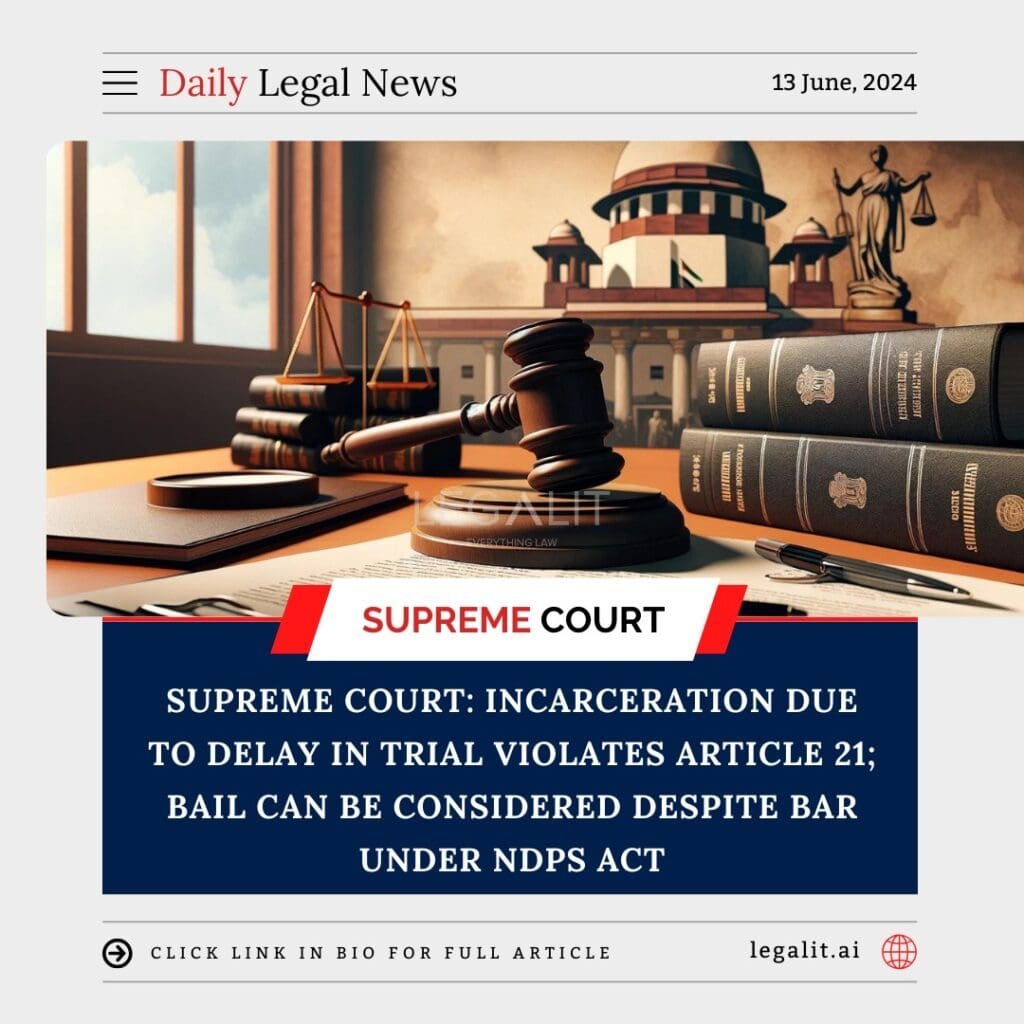
In a landmark ruling, the Supreme Court of India has held that prolonged incarceration due to delays in trial violates Article 21 of the Constitution, which guarantees the right to life and personal liberty. The court further asserted that bail can be considered in such cases despite the stringent conditions imposed by Section 37 of the Narcotic Drugs and Psychotropic Substances (NDPS) Act.
Case Background
The case involved an individual accused under the NDPS Act who had been in custody for an extended period without significant progress in the trial. The defense argued that the prolonged detention violated the fundamental rights of the accused under Article 21 of the Constitution.
Court’s Observations
The Supreme Court made several critical observations in its judgment:
- Right to Speedy Trial:
- The court emphasized that the right to a speedy trial is an integral part of Article 21. Delays in the judicial process that result in prolonged incarceration infringe upon this fundamental right.
- Section 37 of the NDPS Act:
- While Section 37 imposes stringent conditions for granting bail in NDPS cases, the court clarified that these conditions should not override the constitutional mandate for a speedy trial. The court highlighted that laws imposing stringent conditions for bail must be balanced against the rights of the accused when trials are unduly delayed.
- Judicial Discretion:
- The court reiterated that constitutional courts possess the discretion to grant bail even in cases governed by strict statutory provisions, provided there are compelling circumstances such as undue delay in trial.
Legal Implications
This ruling has significant implications for the judicial system, particularly in cases under the NDPS Act. It reinforces the principle that the judiciary must safeguard individual liberties and prevent unjustified prolonged detention. The decision underscores the need for timely trials and ensures that procedural delays do not result in indefinite incarceration of the accused.